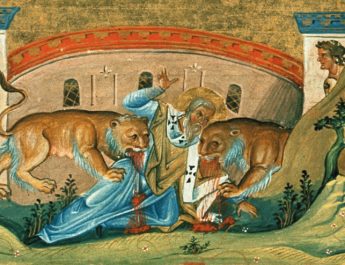Isaiah 55:1-11
Holy Saturday ABC
BibleHub
1 Ho,A everyone who thirsts,B
come to the waters;
and you that have no money,C
come, buy and eat!D
Come, buy wineE and milkF
without money and without price.
Notes on verse 1
A “ho” = ho. This is ah, woe, alas, or O. It is onomatopoeia for an expression of pain, grief, or woe – also for calling attention to.
B “thirsts” = tsame. 9x in OT. From tsame (to thirst in a literal or figurative sense). This is thirsty or dry in a literal or figurative sense.
C “money” = keseph. From kasaph (to long for, be greedy; to become pale). This is silver or money.
D “eat” = akal. To eat or consume in a literal or figurative sense.
E “wine” = yayin. Root may mean to effervesce, referring to the fermentation process. This is wine, grape, or banquet. It can imply intoxication.
F “milk” = chalab. Perhaps from the same as cheleb (fat, finest, marrow; fat in a literal or figurative sense; the richest or best part). This is milk or cheese or suckling.
2 Why do you spend your money for that which is not bread,G
and your laborH for that which does not satisfy?I
Listen carefullyJ to me, and eat what is good,K
and delightL yourselvesM in rich food.N
Notes on verse 2
G “bread” = lechem. From lacham (to eat, feed on). This is bread, food, loaf. It can refer to food more generally for people or for animals.
H “labor” = yegia. 16x in OT. From yaga (to work, become weary, to gasp or be exhausted). This is that which comes from labor – product, possession, fruit, toil, wages, etc.
I “satisfy” = sobah. 5x in OT. From soba (abundance, fullness, satiation; satisfied with food or figuratively joy); from saba (to be sated or satisfied, have plenty or enough in a literal or figurative way). This is satisfied, abundant, or sufficient.
J “listen carefully” = shama + shama. Shama is to hear, call, consent, or consider. It implies listening intelligently, giving attention, and, because of these two factors, obedience and action are often implied. The word is repeated twice – the second time as an Infinitive Absolute. The Infinitive Absolute serves to emphasize the sentiment of the word. It is rather like Foghorn Leghorn’s speech pattern, “I said, I said.”
K “what is good” = tob. This is good, beautiful, pleasant, agreeable, bountiful, at ease. This word is used for goodness as a concept, a good thing, a good person. This can refer to prosperity and welfare as well as joy, kindness, sweetness, and graciousness. So, this is ethically good, but also enjoyably good.
L “delight” = anog. 10x in OT. This is soft or delicate. Figuratively, it can mean luxurious or effeminate. Also, a dainty, delight, or joke.
M “yourselves” = nephesh. Related to naphash (to refresh or be refreshed). This is soul, self, person, emotion. It is a breathing creature. Can also refer to appetites and desires.
N “rich food” = deshen. 15x in OT. From dashen (to be fat, become greast, be anointed or prosperous; can also mean to remove ashes from the fat offered for sacrifice). This is the ashes from that fat, fatness more broady speaking, or, figuratively abundance.
3 Incline your ear, and come to me;
listen, so that you may live.
I will makeO with you an everlastingP covenant,Q
my steadfast, sureR loveS for David.T
Notes on verse 3
O “make” = karath. This is to cut down, cut off, or make a covenant (idiom for making a covenant is “to cut a covenant”). It can also mean to destroy, fail, or consume.
P “everlasting” = olam. This is a long scope of time whether in the past (antiquity, ancient time) or in the future (eternal, everlasting).
Q “covenant” = berit. Perhaps from barah (to eat, choose, make clear); perhaps from bar (grain, wheat); from bara (to select, purify, cleanse, test, brighten, polish). This is a compact, covenant, alliance, treaty, or league.
R “sure” = aman. This is to believe, endure, fulfill, confirm, support, be faithful. It is to put one’s trust in, be steadfast. Figuratively, this is to be firm, steadfast, or faithful, trusting, believing, being permanent, morally solid. This is where the word “amen” comes from.
S “steadfast…love” = chesed. From chasad (being good, kind, merciful; may mean bowing one’s neck as is done in the presence of an equal for courtesy’s sake; so, if one in a superior position is treating you like an equal, that is what is captured here). This is favor, goodness, kindness, loving kindness, pity, reproach, or a good deed. When done by God to humanity, this is mercy/loving kindness. When done by humanity to God, it is piety.
T “David” = David. From the same as dod (beloved, love, uncle); the root may mean to boil, which is used figuratively to describe love. So, this implies someone you love such as a friend, a lover, or a close family member like an uncle. David’s name likely means something like “beloved one.”
4 See,U I made him a witnessV to the peoples,W
a leaderX and commander for the peoples.
Notes on verse 4
U “see” = hinneh. From hen (lo! Behold! If, though; an expression of surprise). This is to draw attention, show suddenness or surprise, or to emphasize the importance of the coming statement. See! Lo! Behold!
V “witness” = ed. From ud (to admonish, repeat, duplicate, testify, restore, record, relieve). This is a witness, testimony, or one who records testimony. It can also refer to a prince.
W “peoples” = leom. Root may refer to gathering. This is people, a community, or a nation.
X “leader” = nagid. From nagad (this is to declare, make conspicuous, stand in front, manifest, predict, explain). This is a commander or leader as the one who stands at the front, whether in a military, religious, or civic setting. It can also mean honorable or noble in an abstract sense.
5 See,Y you shall callZ nationsAA that you do not know,BB
and nations that do not know you shall run to you,
Notes on verse 5a
Y “see” = hen. Related to “see” in v4. See note U above.
Z “call” = qara. This is to call or call out – to call someone by name. Also used more broadly for calling forth.
AA “nations” = goy. From the same root as gevah (the back, person, or body); related to gev (among); related to gaah (to rise up). This is nation or people. Often used to refer to Gentiles or foreign nations. It can also be used figuratively for a group of animals. This is where the Yiddish “goy” comes from.
BB “know” = yada. This is to know, acknowledge, advise, answer, be aware, be acquainted with. Properly, this is to figure something out by seeing. It includes ideas of observation, recognition, and care about something. It can be used causatively for instruction, designation, and punishment.
because of the LordCC your God,DD the Holy OneEE of Israel,FF
for he has glorifiedGG you.
6 SeekHH the Lord while he may be found,II
call upon him while he is near;
Notes on verses 5b-6
CC “Lord” = YHVH. From havah (to be, become) or hayah (to come to pass, become, be). This is the name of the God of Israel, the self-existent and eternal one, the tetragrammaton. This pronunciation has been lost to time so “Lord” is generally used in its place.
DD “God” = Elohim.
EE “Holy One” = qadosh. From qodesh (set apart and so sacred; God is different from us and so God is holy/set apart; things we dedicate to God’s service are set apart for God and so they, too, are holy); related to qadash (set apart, consecrated, hallowed, sanctified; something or someone set apart for a holy purpose or use – ceremonially or morally clean). This is sacred or holy in a ritual or moral sense. As a noun, it refers to a holy one (like a saint or angel), a holy place (the sanctuary), or God (the Holy One).
FF “Israel” = yisrael. From sarah (to persist, exert oneself, contend, persevere, wrestle, prevail) + el (God or god). This is God strives or one who strives with God; new name for Jacob and for his offspring. This refers to the people and to the land.
GG “glorified” = paar. 14x in OT. This is to beautify or adorn, to gleam. Thus, it can refer to showing honor or glorifying someone. It can also mean to boast or to shake a tree for harvest.
HH “seek” = darash. This is seek, ask, inquire, care for. Generally it means following in pursuit or following as part of a search, which implies seeking or asking. Also used specially to mean worship.
II “found” = matsa. This is to find, catch or acquire. It can also mean to come forth or appear. Figuratively, this can mean to meet or be together with.
7 let the wickedJJ forsakeKK their way,LL
and the unrighteousMM their thoughts;NN
let them returnOO to the Lord, that he may have mercyPP on them,
and to our God, for he will abundantly pardon.
Notes on verse 7
JJ “wicked” = rasha. This is morally wrong so it refers to someone who is actively bad as wicked, criminal, an evil person, offender, condemned, or ungodly.
KK “forsake” = azab.To loosen, relinquish, permit, forsake, fail, leave destitute.
LL “way” = derek. From darak (to tread, march, to walk. Can also mean affixing a string to a box since one needs to step on it to bend it in the process; so also an archer). This is a road as a thing that is walked on. Can be used figuratively for the path that one’s life takes or how one chooses to live one’s life.
MM “unrighteous” = ish + aven. Ish is perhaps from enosh (human, humankind, mortal); from anash (to be weak, sick, or frail). This is man, husband, another, or humankind. Aven has a root that may mean panting as one does when expending a lot of energy, especially when it comes to nothing. This is nothingness, trouble, sorrow, distress, wickedness, evil, harm, sorrow, misfortune, and mischief. It is also used specifically to refer to idols.
NN “thoughts” = machashabah. From chashab (literally to weave; figuratively to think or plot something malicious). This is thought, scheme, imagination, purpose, or a plan either good or evil.
OO “return” = shub. To turn back, return, turn away – literally or figuratively. Doesn’t necessarily imply going back to where you started from. This is also the root verb for the Hebrew word for repentance “teshubah.”
PP “have mercy” = racham. From the same as rechem (womb); from racham (to love, have compassion, have mercy); from racham (compassion, tender love, womb, compassion; the womb as that which cherishes the fetus). This is compassion, mercy, or tender love.
8 For my thoughts are not your thoughts,
nor are your ways my ways, saysQQ the Lord.
9 For as the heavensRR are higherSS than the earth,
so are my ways higher than your ways
and my thoughts than your thoughts.
Notes on verses 8-9
QQ “says” = neum. From na’am (to speak a prophecy; properly, to whisper, which implies saying an oracle). This is an utterance or speaking an oracle.
RR “heavens” = shamayim. Root may mean being lofty. This is sky, the air, or heaven. It is in a dual noun form so this might refer to the part of the sky where the clouds move on the one hand and the part beyond that where the sun, moon, and stars are on the other hand.
SS “higher” = gabahh. This is to soar or be lofty. So, this is to be high or lift up literally. Figuratively it means to be exalted or proud.
10 For as the rain and the snow come down from heaven,
and do not return there until they have wateredTT the earth,
making it bring forthUU and sprout,
giving seedVV to the sowerWW and bread to the eater,
Notes on verse 10
TT “watered” = ravah. 14x in OT. This is to have one’s thirst satisfied (or figuratively other cravings). It can also mean to soak, water, or satisfy.
UU “bring forth” = yalad. This is to bear or bring forth. It can mean to act as midwife or to show one’s lineage. This is often used for birth or begetting.
VV “seed” = zera. From zara (to sow or scatter seed; conceive or yield). This is seed or sowing. It can, thus, mean a fruit, plant, sowing time, child, offspring, or posterity.
WW “sower” = zara. Related to “seed” in v10. See note VV.
11 so shall my wordXX be that goes out from my mouth;
it shall not return to me empty,YY
but it shall accomplish that which I purpose,ZZ
and succeedAAA in the thing for which I sent it.
Notes on verse 11
XX “word” = dabar. From dabar (to speak, declare, discuss). This is speech, a word, a matter, an affair, charge, command, message, promise, purpose, report, request. It is a word, which implies things that are spoken of in a wide sense.
YY “empty” = reqam. 16x in OT. From riq (this is to be empty or to make empty; also vanity, emptiness, something worthly, in vain); from ruq (to pour out in a literal or figurative sense, hence, to be or make empty). This is emptily, empty-handed, without cause, in vain, ineffectually, or undeservedly.
ZZ “purpose” = chaphets. Properly, this means inclined towards or bending to. Figuratively, it means to desire, delight in, or be pleased with.
AAA “succeed” = tsalach. This is pushing forward in a literal or figurative sense. So it could be to break out, to come mightily, to rush, to go over. Figuratively, it could mean to prosper.
Image Credit: “Woman with Bird” by Ursula Malbin, 1978.




